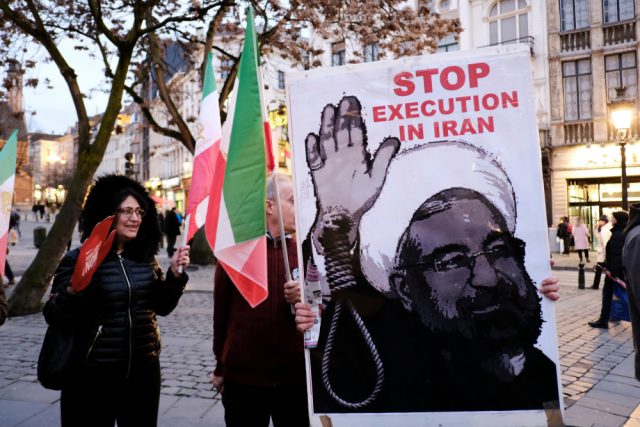
The president of the European Parliament, Roberta Metsola, opened the plenary session of the Eurochamber in Brussels with very clear words towards Tehran: “The time has come to impose more severe sanctions against the Iranian regime”.
It is therefore necessary for Metsola not to take steps back from the theocratic government because it is responsible for “a ruthless repression of demonstrations and continuous violations of human rights“. Very decisive words expressed by Metsola that come exactly a few days after the news that 227 out of 290 members of the Islamic consultative assembly, the parliament of Tehran, have asked for the death penalty for the demonstrators arrested during the protests. This is because, according to them, they are mohareb, “enemies of God”. In Iran the punishment for mohareb is the death penalty. “As representatives of this nation we call on the authorities and the judiciary to confront these enemies of God, who have attacked lives and property, and deserve divine condemnation and vengeance,” said Judiciary Chief Gholamhossein Mohseni-Ejei.
The protests have been going on and have been inflaming the country for the past two months. It all started last September 16 when Mahsa Amini, a 22-year-old student, was arrested, tortured, and killed by the Iranian police in a prison in the Capital. According to data reported by Hrana, the agency of Iranian human rights activists, around 15 thousand citizens have been arrested since the beginning of the protests. Now they would risk being sentenced to the death penalty. MPs blame demonstrators for the hundreds of deaths caused by the regime’s repression. Iran Human Rights published a bulletin last November 5 in which it is written that 304 have died, including 41 minors and 24 women. All killed by the regime’s police. In the light of the request for the death sentence of the demonstrators, the IHR made an appeal to the international community recalling that “the people have the inalienable right to protest” and that “issuing death sentences against demonstrators is an international crime: those responsible for these actions will have to be held guilty of this crime”.
The protests have now spread to all the urban centers of the nation and the disputes have increasingly taken on a political character. At the center of the crosshairs is the theocratic government of Ayattollah Khomeini. After the death of another young woman, Nasrin Gadheri, who was beaten to death with batons on the head during demonstrations last Friday. The government, like what happened with Mahsa Amini, have denied any kind of involvement.
The first to take to the streets were the women. Now university students, intellectuals and a large part of civil society have also embraced the protest. The unveiled marches and haircuts symbolize a deep discontent against the moral police and the regime of the ayatollahs.
For the moment, the international community has not expressed itself forcefully regarding the violations of rights in Iran. Indeed, the United Nations Human Rights Council have only condemned the repression. Brussels, however, in October imposed sanctions against the regime in Tehran. President Metsola’s words open a window to the possibility that an independent international investigation will be opened “to ask the Iranian government to account for human rights violations”.



 Subscribe
Subscribe